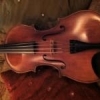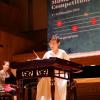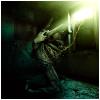Leaderboard
Popular Content
Showing content with the highest reputation on 08/17/2012 in all areas
-
Marius is spot on with his question. A high degree of Instrument proficiency is not necessary to be a versatile composer. A versatile composer is one who may write for two or more situations: concert and dramatic music for traditional instruments, electro-acoustic, educational music geared for church use ot pedagogical use, and sound design ( usually this may mean creating more realistic renderings of other people's computer renditions of their music, creating sound effects and meshing them with composed music - common with film and video game music, working with visual artists and architects to create sound component of a multi-media installation). In addition, a versatile composer will possibly teach or engrave other peoples' music However, if you wish to be a composer and earn your main income from music, then your best bet for income is composer/performer/teacher where advanced instrument proficiency is a huge help. What is most important is EXPOSURE to music and developing your ear through singing and aural drills. This is just for building a disciplined awareness so you get the most from your wide exposure to a variety of musics. Counterpoint studies I advocate mainly as it is a centuries-old procedure to develop musical discipline. Plus it has general utility as one tool for judging the spacing and relations of your voices. The question you have to ask in the future is: are you committed enough to composition and earning your income from it so that you will do some of the following?: 1) Teach a general music course to k- 6th grades as a visiting composer or general music teacher? Or go on the college teaching track by teaching a few classes as an adjunct, lead say a choir for extra money, while you have private students and earn your doctorate.Not many get tenured college teaching positions. 2) Develop a new music group to perform your works - that is find funding, get musicians, pay musicians, find venues, etc??? 3) Write music for films or commercials that you have to generate enthusiasm and interest in when starting out so you get projects that interest you. I think to start you need to write for a number of ensembles, solos, etc and a variety of purposes (a concert, film, choir, etc) to find what you want to do. The one caution is, if composing ALWAYS becomes something you HAVE to do and you are indifferent to the results because you are so concerned about paying bills or "making it big" , then I would pause and reflect why you are even doing this as there are more lucrative ways to pay the bills, save, and take a vacation than writing music. Finally, check maestrowick's post which further expound on these topics.1 point
-
Strict counterpoint is counterpoint that wholly adheres to the regular rules of species counterpoint (around a cantus firmus). Free counterpoint is counterpoint that is less restricted to the regular rules of species counterpoint (generally appears without a cantus firmus). I like to think a more modern application of strict and free counterpoint is: Strict: counterpoint that supports and enhances the chief melodic material within traditional contrapuntal means. Free: counterpoint that may or may not support, but does enhance, the chief melodic material outside that of traditional means. For instance, a harmonically oriented contrapuntal texture with 2 or more lines of counterpoint that work to support and enhance the chief melodic material would be strict counterpoint while a chaotic contrapuntal texture with 2 or more lines of individually derived contrapuntal material that conflict with each other, while at the same time enhancing each other would be free counterpoint. Not sure if that helps, at all, but that's just my personal take on it.1 point
-
I have no idea. All I know is species counterpoint didn't teach me anything I already didn't know from simply studying melodies and how they interact. I find studying Bach is far more fun esp. his fugues.1 point
-
I'm sorry, I know this was kind of secondary to the point you were making but I couldn't leave it unchallenged. 12-tone music is not random at all, nor does it even sound random once you know what to listen for. A tone row creates a consistent set of interval relations between all notes in a piece that is perceptible to the ear. Take this row for example: E, Bb, A, Eb, F, B, C, Gb, Ab, D, Db, G Regardless of transposition, retrograde or inversion, the only intervals in any form of this row will be minor 2nds/major 7ths, major 2nds/minor 7ths and tritones. Whether you are aware of this or not while listening to the piece, it will still seem on the surface to have a level of cohesion and consistency as the piece will be dominated by the unique sound of mostly just these intervals in combination. The serial method isn't supposed to create the emotional content, nor has anybody ever expected it to do so. It is simply an organisational tool and doesn't really have any effect at all on the aesthetic of the music it is used to produce. If I played you 3 pieces of serial music: one by Berg, one by Webern and one by Stravinsky, you would know instantly that they were all written by different composers. Also, listen to anything by Webern from the period before he started using serial technique then listen to anything serial by Webern. You will find that the overall aesthetic is basically the same in both pieces, almost as if the serial method was unnecessary in the first place and only a means to an end rather than being the end itself... ...which brings me to the original point of the thread. There is no use looking for a contemporary system or "correct" method because such things are simply a means to an end. The most important thing is to have an artistic vision of your own. While you develop that, the best thing you can do in my opinion is to immerse yourself in music from all eras to develop your ear and analyse as many scores as you can to get a feel for how certain effects/textures etc. are notated. The more music you study/listen to, the more chance you have of fully developing that vision.1 point
-
I'm never sure what my thoughts on originality are. I dislike the modern idiom quite a bit (or a big chunk of it. there's a lot in ligeti etc that I like, but.) because I think it assumes that written and heard music are experienced in the same way, and descends into lame gimmickry as a result. Once music gets mathematical in the 12-tone sense, aural meaning gets lost. Our ears cannot extract from what is heard the tone row, or its inversions, or its numerous chordal transformations. Music that is mathematical on the page is noise to the ear. I have a test which I use when I'm listening to something moderately "modern" -- that is, does my *listening* to the music make me appreciate it more than if I just saw the incredibly clever/original/quirky/avant-garde score? Very often the music just sounds lame. What *can* our ears plausibly extract, then? Tonality is an especially useful tool (though it is certainly not the only one) because it builds upon the natural biological capacities of the ear. We can obviously distinguish between different scales (note that the "western" scale is built up naturally from a succession of overtones) and different major/minor triads, etc. We can also tell modulations or certain harmonic effects (dissonance, consonance) apart. A more sensitive ear may catch certain harmonic intervals or leitmotifs, etc. What is the unique value of "uniqueness"? Why does the statement "this music is unlike past music" goad me in any way to be inclined to like that music more? Good music is nice notes put in nice orders. I could not care less whether they are put in Bach-like orders, Mozart-like orders, or wholly new orders. Maybe a value of newness is the surprise and the intellectual pleasure that we gain from experiencing a new idiom. Is the value of that emotional response more important in some meaningful sense from just having well-organised, sensitive music on a page? I don't see why. So if I write a Mozart symphony, it's still brilliant music. If I write a Bach fugue, it's still great. The notes are in nice orders. The danger in some fetishization of originality is that we forget that music is not, essentially, clever gimmickry, or intellectual self-pleasuring. It's about trying to elicit emotional responses -- one of which is a sense of intellectual satisfaction. We ought not delude ourselves into thinking that this is the only meaningful emotional response music can elicit. Many composers who try very hard to be original forget that originality is very, very, often more fun and exciting for the composer than the listener. I will make a major caveat here: that the ear can adapt to new sounds. See Stravinsky, Prokofiev, etc. But I do claim that there are inherent limits to this. So some people consider 12-tone stuff deeply moving, but I do claim that they would find any random piece of nonsense equally moving, because they would learn to like the randomness of the sounds they were hearing. It is not the *organization* of notes, no matter how intellectually pleasing, that creates the emotional response. It is the listener doing for the composer what the composer ought to have done. I object strongly to the claim that "True to yourself does also mean true to your time. That implies: no style-copies." 1. Why can I not conceive myself as a person of a different time? 2. Well, what is the music of our time like? The vast majority of the music being listened to is tonal. Most of it is vocal. Most of it incorporates electronic stuff, and most of it uses very straightforward harmony. So I'm afraid that while Jrcramer writes very interesting music that I often like very much, he is not writing music of our time at all. A modern casual listener would not get much out of it. I'm sure people prefer, say, Coldplay's stuff to my musical scribblings. The truth us that *none* of us should pretend to be writing "music of our time". What we are doing, and what is no less praiseworthy, is writing music that we like, for all sorts of subjective reasons, and hoping that in a community of people like this one other peiple will appreciate our efforts. Austenite is right on this point, and we ought to be at least a little less pretentious about what we're actually doing. I dislike fluffy "true to yourself" nonsense, but I find it a better standard than being "modern" or "original", at least. Great literary writers do not write gibberish, objecting to the fact that their language is the language of the past. James Joyce came very close, but even then his language was rooted in an infinitude of reference to the past. What they do is take words, sentences, phrases, plot structures, and do things with them that are interesting. I do not see why we ought in music to aspire toward some undefinable and naive ideal of being true to some arbitrary value of originality. If we discovered a manuscript by Beethoven and declared it a masterpiece, and then realised that it was a forgery by some 21st century hack, the notes on the page remain exactly the same. Why, suddenly and inexplicably, does that music then become bad? So, in what is at best an oblique answer to Marzique's question, (I do not believe from past observation that you desire any serious discussion, but I'm giving you the benefit of the doubt here, since Jrcramer is clearly keen of having a real discussion about the merits of a modern idiom) I'll say: why do you even care to be "modern"? I fear that many of the most original composers were not trying particularly hard to be modern. Scriabin wrote what he thought sounded interesting to him. Prokofiev's very first pieces featured his natural affinity for asymmetry, tritones, percussive use of the piano, etc. Just write stuff, listen to stuff, and hopefully the notes will take you places. Or maybe they won't, but we ought not care. Cry me a river.1 point
-
Composer Phil, you're really annoying with your sarcastic and unpleasant answers. :mad:1 point
-
I play viola, and I would have to say that the Bartok Viola Concerto is the best out there.1 point
-
HAHAHAHAHAH one day i was feeling so bored so i just anyhow typed "young composers" and a list of young composers award/compeition thingies came out. Then i typed "young composers FORUM" and was directed to the forum site....and i peeped at the forum shoutbox for a few minutes, and the people there (if i remember, it is heckel and jaws and some other person) were talking about REAL MUSIC stuff and i was like "WOAH okok i want join!!!" and hence Im here :D 2011 May 2nd. :D1 point






